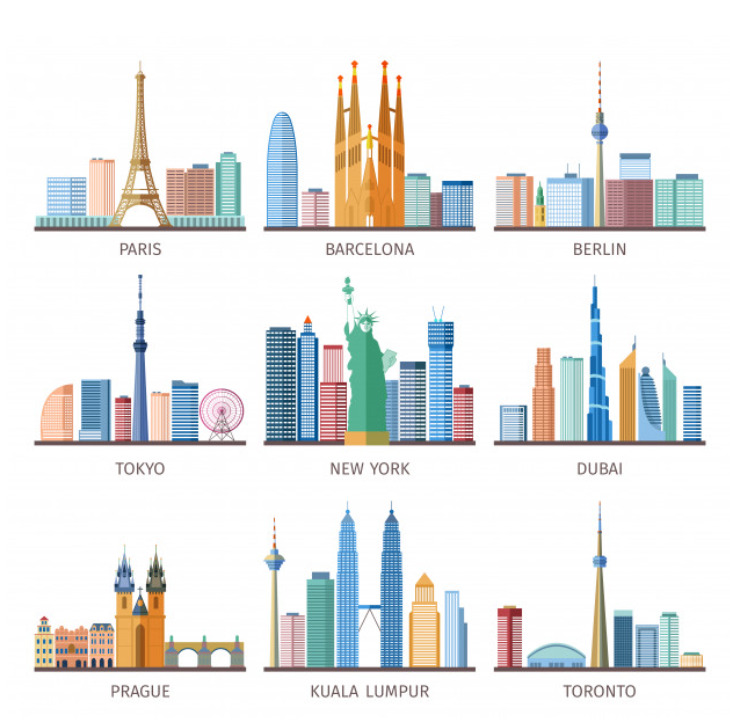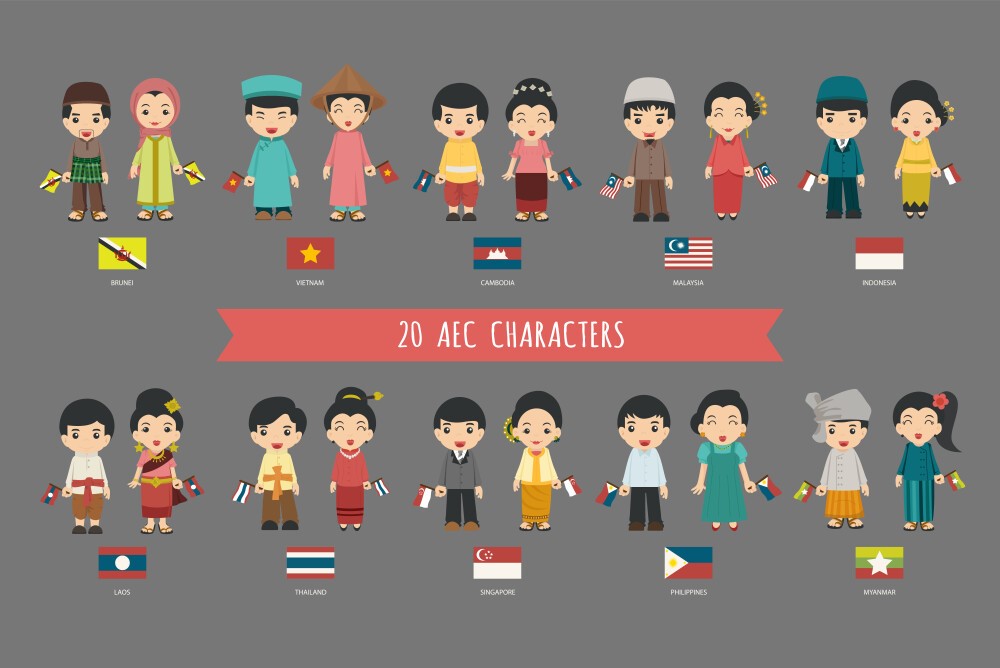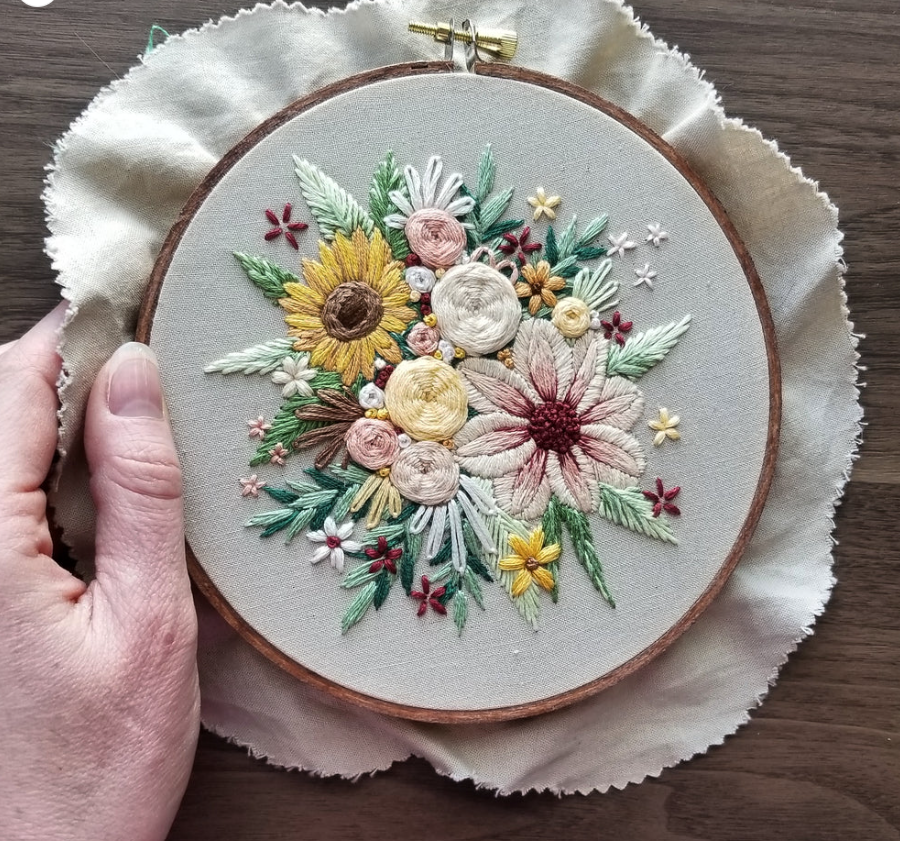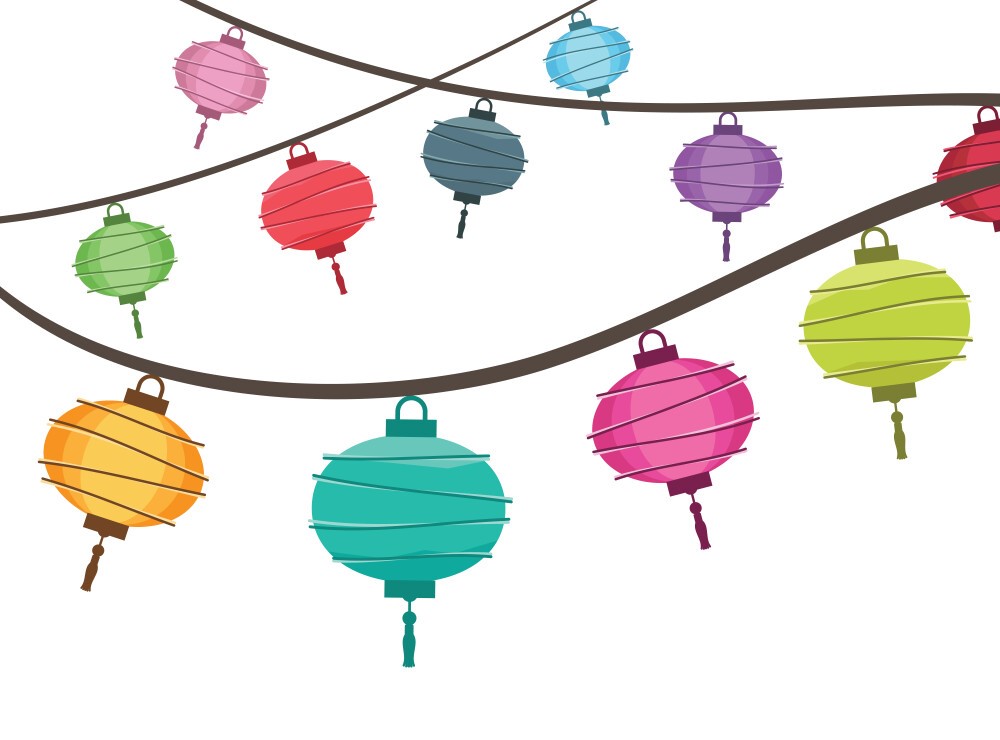LESSON 1
1.capital : (n) thủ đô
Spelling: /ˈkæpɪtl/

Example: The capital city of Vietnam is Hanoi.
Translate: Thủ đô của Việt Nam là Hà Nội.
2.fascinating : (adj) hấp dẫn, thú vị
Spelling: /ˈfæsɪneɪtɪŋ/
Example: Different cultures are so fascinating. There’s so much we can learn about.
Translate: Văn hóa khác nhau rất hấp dẫn. Có rất nhiều điều chúng ta có thể tìm hiểu.
3.national costume : (n.p) trang phục quốc gia, quốc phục
Spelling: /ˌnæʃnəl ˈkɒstjuːm/

Example: The national costume of Japan is a robe called a kimono.
Translate: Trang phục dân tộc của Nhật Bản là áo choàng gọi là kimono.
4.occasion : (n) dịp
Spelling: /əˈkeɪʒn/
Example: Weddings are a special occasion in nearly every country.
Translate: Đám cưới là một dịp đặc biệt ở hầu hết các quốc gia.
5.robe : (n) áo choàng
Spelling: /rəʊb/

Example: The national costume of Japan is a robe called a kimono.
Translate: Trang phục dân tộc của Nhật Bản là áo choàng gọi là kimono.
6.specialty : (n) đặc sản
Spelling: /ˈspeʃ.əl.ti/
Example: Pad Thai is a specialty of Thailand.
Translate: Pad Thái là đặc sản của Thái Lan.
7.stunning : (adj) tuyệt đẹp
Spelling: /ˈstʌn.ɪŋ/
Example: That kimono has beautiful flowers and colors. It looks stunning.
Translate: Bộ kimono đó có hoa và màu sắc rất đẹp. Nó trông tuyệt đẹp.
8.government : (n) chính phủ
Spelling: /ˈɡʌvənmənt/

Example: The government has introduced new policies to improve public health.
Translate: Chính phủ đã giới thiệu các chính sách mới để cải thiện sức khỏe cộng đồng.
9.celebration : (n) lễ kỷ niệm
Spelling: /ˌselɪˈbreɪʃn/

Example: The city held a grand celebration for its 100th anniversary.
Translate: Thành phố đã tổ chức một lễ kỷ niệm lớn cho dịp kỷ niệm 100 năm.
10.attraction : (n) điểm thu hút
Spelling: /əˈtrækʃn/
Example: The Eiffel Tower is a major tourist attraction in Paris.
Translate: Tháp Eiffel là một điểm thu hút du khách chính ở Paris.
11.folk song : (n.p) bài ca dân gian
Spelling: /fəʊk sɒŋ/

Example: The band performed a traditional folk song at the festival.
Translate: Ban nhạc đã biểu diễn một bài dân ca truyền thống tại lễ hội.
12.celebrate : (v) kỷ niệm
Spelling: /ˈselɪbreɪt/
Example: They plan to celebrate their wedding anniversary with a trip to Hawaii.
Translate: Họ dự định kỷ niệm ngày cưới bằng một chuyến đi đến Hawaii.
13.ethnic : (adj) thuộc về dân tộc
Spelling: /ˈeθnɪk/
Example: The museum has a vast collection of ethnic artifacts from around the world.
Translate: Bảo tàng có một bộ sưu tập lớn các hiện vật dân tộc từ khắp nơi trên thế giới.
14.embroidery : (n) thêu
Spelling: /ɪmˈbrɔɪ.dər.i/

Example: She learned the art of embroidery from her grandmother.
Translate: Cô ấy đã học nghệ thuật thêu từ bà của mình.
15.blouse : (n) áo choàng, áo bờ -lu
Spelling: /blaʊz/

Example: She wore a beautiful silk blouse to the dinner party.
Translate: Cô ấy mặc một chiếc áo sơ mi lụa đẹp đến bữa tiệc tối.
16.grill : (adj) nướng
Spelling: /ɡrɪl/

Example: We enjoyed delicious grilled meat at the barbecue last night.
Translate: Chúng tôi đã thưởng thức món thịt nướng ngon tại buổi tiệc nướng tối qua.
17.lantern : (n) đèn lồng
Spelling: /ˈlæntən/

Example: The children made colorful lanterns for the Mid-Autumn Festival.
Translate: Các em đã làm những chiếc đèn lồng đầy màu sắc cho Tết Trung Thu.
LESSON 2
18.accepted : (adj) được chấp nhận
Spelling: /əkˈseptɪd/
Example: Her proposal became the accepted plan for the new project.
Translate: Đề xuất của cô ấy đã trở thành kế hoạch được chấp nhận cho dự án mới.
19.bend : (v) cúi người, bẻ cong
Spelling: /bend/
Example: He had to bend down to pick up the fallen book.
Translate: Anh ấy phải cúi xuống để nhặt cuốn sách rơi.
20.bow : (v) cúi chào
Spelling: /baʊ/

Example: People in the UK usually don’t bow, but it’s very common in Japan and India.
Translate: Người dân ở Anh thường không cúi chào nhưng điều này lại rất phổ biến ở Nhật Bản và Ấn Độ.
21.manner : (n) cách xử sự lịch thiệp
Spelling: /ˈmæn.ər/
Example: It’s important to have good manners when meeting an important person at work or school.
Translate: Điều quan trọng là phải có cách cư xử lịch sự khi gặp một người quan trọng ở cơ quan hoặc trường học.
22.norm : (n) chuẩn mực, quy tắc
Spelling: /nɔːm/
Example: In some countries, it is a cultural norm to arrive late for parties. Lots of people do it.
Translate: Ở một số quốc gia, việc đến dự tiệc muộn là một thông lệ. Rất nhiều người làm điều đó.
23.punctuality : (n) sự đúng giờ
Spelling: /ˌpʌŋktʃuˈæləti/
Example: In places like the USA, punctuality is very important. People might get upset if you’re very late.
Translate: Ở những nơi như Mỹ, việc đúng giờ rất quan trọng. Mọi người có thể khó chịu nếu bạn đến muộn.
24.rude : (adj) thô lỗ
Spelling: /ruːd/
Example: In Vietnam, it is rude to go inside someone’s house with your shoes on.
Translate: Ở Việt Nam, việc mang giày vào nhà người khác là bất lịch sự.
25.shake hands : (v.phr) bắt tay
Spelling: /ʃeɪk hænd/

Example: After introducing yourself, you should shake hands to greet someone.
Translate: Sau khi giới thiệu bản thân, bạn nên bắt tay chào hỏi ai đó.
26.slipper : (n) dép
Spelling: /ˈslɪpə(r)/

Example: She wore a comfortable pair of slippers around the house.
Translate: Cô ấy mang một đôi dép đi trong nhà thoải mái.
27.taboo : (adj) cấm kỵ
Spelling: /təˈbuː/
Example: You should avoid pointing your fingers at people. Many people think it is very taboo.
Translate: Bạn nên tránh chỉ tay vào người khác. Nhiều người cho rằng đó là điều hết sức cấm kỵ.
28.take off : (phr.v) cất cánh
Spelling: /ˈteɪk ɒf/
Example: The plane will take off in about 30 minutes.
Translate: Máy bay sẽ cất cánh trong khoảng 30 phút nữa.
29.pretty : (adv) khá là
Spelling: /ˈprɪti/
Example: She did pretty well on her final exams this semester.
Translate: Cô ấy đã làm khá tốt trong kỳ thi cuối kỳ này.
30.cheek : (n) má
Spelling: /tʃiːk/

Example: She kissed him on the cheek before saying goodbye.
Translate: Cô ấy hôn lên má anh trước khi nói lời tạm biệt.
31.strange : (adj) lạ lẫm
Spelling: /streɪndʒ/
Example: It felt strange to be back in my hometown after so many years.
Translate: Cảm thấy lạ lẫm khi trở về quê hương sau nhiều năm như vậy.
32.temple : (n) ngôi đền
Advertisements (Quảng cáo)
Spelling: /ˈtempl/

Example: They visited the ancient temple during their trip to Japan.
Translate: Họ đã thăm ngôi đền cổ trong chuyến đi đến Nhật Bản.
33.consider : (v) xem xét
Spelling: /kənˈsɪdərɪŋ/
Example: We need to consider all possible options before making a decision.
34.on time : (adv) đúng giờ
Spelling: /ɒn taɪm/ ">
Example: The train arrived on time despite the heavy rain.
Translate: Tàu đã đến đúng giờ mặc dù trời mưa to.
35.familiar : (adj) quen thuộc
Spelling: /fəˈmɪliə(r)/
Example: The song sounds familiar, but I can’t remember where I’ve heard it before.
Translate: Bài hát nghe quen thuộc, nhưng tôi không nhớ đã nghe nó ở đâu trước đây.
36.touch : (v) chạm vào
Spelling: /tʌtʃ/
Example: Please do not touch the exhibits in the museum.
Translate: Xin đừng chạm vào các hiện vật trong bảo tàng.
37.rarely : (adv) hiếm khi
Spelling: /ˈreəli/
Example: She rarely eats out because she prefers home-cooked meals.
Translate: Cô ấy hiếm khi ăn ngoài vì cô ấy thích bữa ăn nấu tại nhà hơn.
38.elder : (n) người lớn tuổi
Spelling: /ˈel.dər/
Example: The elders in the community are highly respected for their wisdom and experience.
Translate: Những người lớn tuổi trong cộng đồng rất được kính trọng vì sự khôn ngoan và kinh nghiệm của họ.
39.blow : (v) thổi
Spelling: /bləʊ/
Example: The wind began to blow harder as the storm approached.
Translate: Gió bắt đầu thổi mạnh hơn khi cơn bão đến gần.
40.polite : (adj) lịch sự
Spelling: /pəˈlaɪt/ ">
Example: It is important to be polite to others, regardless of the situation.
Translate: Điều quan trọng là phải lịch sự với người khác, bất kể tình huống nào.
41.storekeeper : (n) chủ cửa hàng
Spelling: /ˈstɔːˌkiː.pər/

Example: The storekeeper greeted each customer with a friendly smile.
Translate: Người chủ cửa hàng chào đón mỗi khách hàng với một nụ cười thân thiện.
42.forward : (adv) hướng về phía trước
Spelling: /ˈfɔːwəd/
Example: She took a step forward to get a better view of the painting.
Translate: Cô ấy bước lên phía trước để có cái nhìn rõ hơn về bức tranh.
43.common : (adj) phổ biến
Spelling: /ˈkɒmən/
Example: It is common to see street vendors selling food in this area.
Translate: Thật phổ biến khi thấy những người bán hàng rong bán đồ ăn ở khu vực này.
44.quickly : (adv) một cách nhanh chóng
Spelling: /ˈkwɪkli/
Example: He quickly finished his homework so he could go outside to play.
Translate: Anh ấy nhanh chóng làm xong bài tập về nhà để có thể ra ngoài chơi.
45.particular : (adj) đặc biệt
Spelling: /pəˈtɪkjələ(r)/
Example: She has a particular interest in ancient history.
Translate: Cô ấy có một sự quan tâm đặc biệt đến lịch sử cổ đại.
46.surprising : (adj) ngạc nhiên
Spelling: /səˈpraɪzɪŋ/
Example: It was surprising to see snow in the middle of April.
Translate: Thật ngạc nhiên khi thấy tuyết rơi vào giữa tháng Tư.
LESSON 3
47.change : (n) tiền lẻ
Spelling: /tʃeɪndʒ/
Example: Make sure you have change if you need to use public toilets.
Translate: Hãy chắc chắn rằng bạn có tiền lẻ nếu cần sử dụng nhà vệ sinh công cộng.
48.cuisine : (n) ẩm thực
Spelling: /kwɪˈziːn/
Example: Italian people are proud of their cuisine.
Translate: Người Ý tự hào về ẩm thực của họ.
49.disgusting : (adj) kinh tởm
Spelling: /dɪsˈɡʌstɪŋ/
Example: People in Spain find it disgusting to stretch and yawn in public.
Translate: Người dân Tây Ban Nha cảm thấy ghê tởm việc vươn vai và ngáp ở nơi công cộng.
50.expect : (v) trông đợi, mong chờ
Spelling: /ɪkˈspekt/
Example: You can expect to pay to use the toilet in restaurants or coffee shops.
Translate: Bạn có thể phải trả tiền để sử dụng nhà vệ sinh trong nhà hàng hoặc quán cà phê.
51.stretch : (v) duỗi (tay, chân)
Spelling: /stret∫/

Example: Don’t stretch or yawn in public in Spain.
Translate: Đừng vươn vai hoặc ngáp ở nơi công cộng Tây Ban Nha.
52.yawn : (v) ngáp
Spelling: /jɔːn/

Example: Don’t stretch or yawn in public in Spain.
Translate: Đừng vươn vai hoặc ngáp ở nơi công cộng Tây Ban Nha.
53.highway : (n) đường cao tốc
Spelling: /ˈhaɪweɪ/
Example: We have to pay to use a toilet at a bus stop on the highway.
Translate: Chúng tôi phải trả tiền để sử dụng nhà vệ sinh ở trạm xe buýt trên đường cao tốc.
54.loudly : (adv) một cách lớn tiếng
Spelling: /ˈlaʊdli/
Example: People in the US think it’s rude to eat loudly.
Translate: Người dân ở Mỹ cho rằng ăn ồn ào là bất lịch sự.
55.chef : (n) đầu bếp
Spelling: /ʃef/

Example: The chef prepared an exquisite meal for the guests.
Translate: Đầu bếp đã chuẩn bị một bữa ăn tinh tế cho các vị khách.
56.pocket : (n) túi
Spelling: /ˈpɒkɪt/

Example: He put the keys in his pocket before leaving the house.
Translate: Anh ấy đặt chìa khóa vào túi trước khi rời khỏi nhà.
57.bargain : (v) mặc cả
Spelling: /ˈbɑːɡən/
Example: She managed to bargain the price down by 20% at the market.
Translate: Cô ấy đã mặc cả giá xuống 20% tại chợ.
58.souvenir : (n) quà lưu niệm
Spelling: /ˌsuːvəˈnɪə(r)/
Example: They bought a small souvenir to remember their trip to Paris.
Translate: Họ đã mua một món quà lưu niệm nhỏ để nhớ về chuyến đi đến Paris.
59.actual : (adj) thực tế
Spelling: /ˈæktʃuəl/
Example: The actual cost of the repairs was much higher than the estimate.
Translate: Chi phí thực tế của việc sửa chữa cao hơn nhiều so với ước tính.
60.pagoda : (n) chùa
Spelling: /pəˈɡəʊdə/

Example: The pagoda is a serene place where people come to pray and meditate.
Translate: Ngôi chùa là một nơi yên tĩnh nơi mọi người đến cầu nguyện và thiền định.
61.sandal : (n) dép xăng-đan
Spelling: /ˈsændl/

Example: She wore sandals to the beach to keep her feet cool.
Translate: Cô ấy mang dép xăng-đan ra bãi biển để giữ cho chân mát mẻ.
62.unprofessional : (adj) thiếu chuyên nghiệp
Spelling: /ˌʌnprəˈfeʃənl/
Example: His unprofessional behavior cost him the job.
Translate: Hành vi thiếu chuyên nghiệp của anh ấy đã khiến anh mất việc.
63.waiter : (n) người phục vụ
Spelling: /ˈweɪtə(r)/

Example: The waiter took our orders and brought our drinks promptly.
Translate: Người phục vụ đã ghi đơn hàng của chúng tôi và mang đồ uống đến ngay.
64.comment : (n) bình luận
Spelling: /ˈkɒmɛnt/
Example: She made a positive comment about his presentation.
Translate: Cô ấy đã đưa ra một bình luận tích cực về bài thuyết trình của anh ấy.
